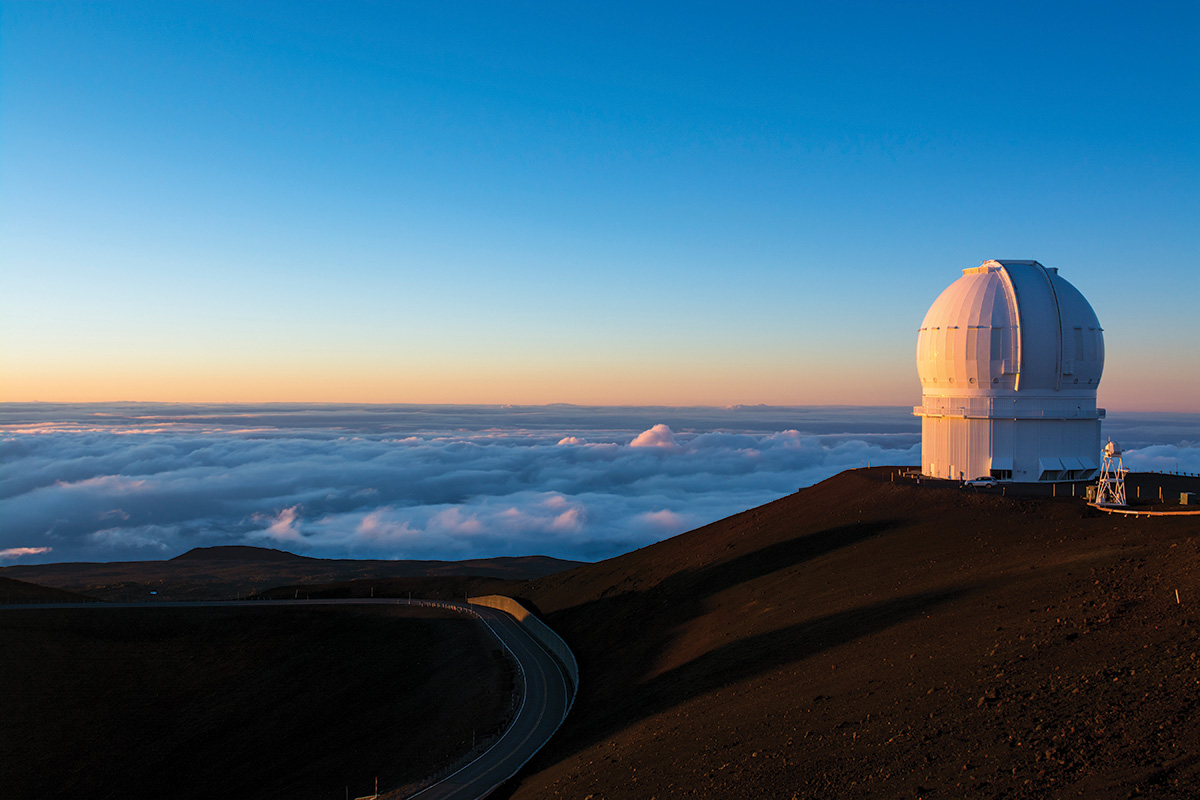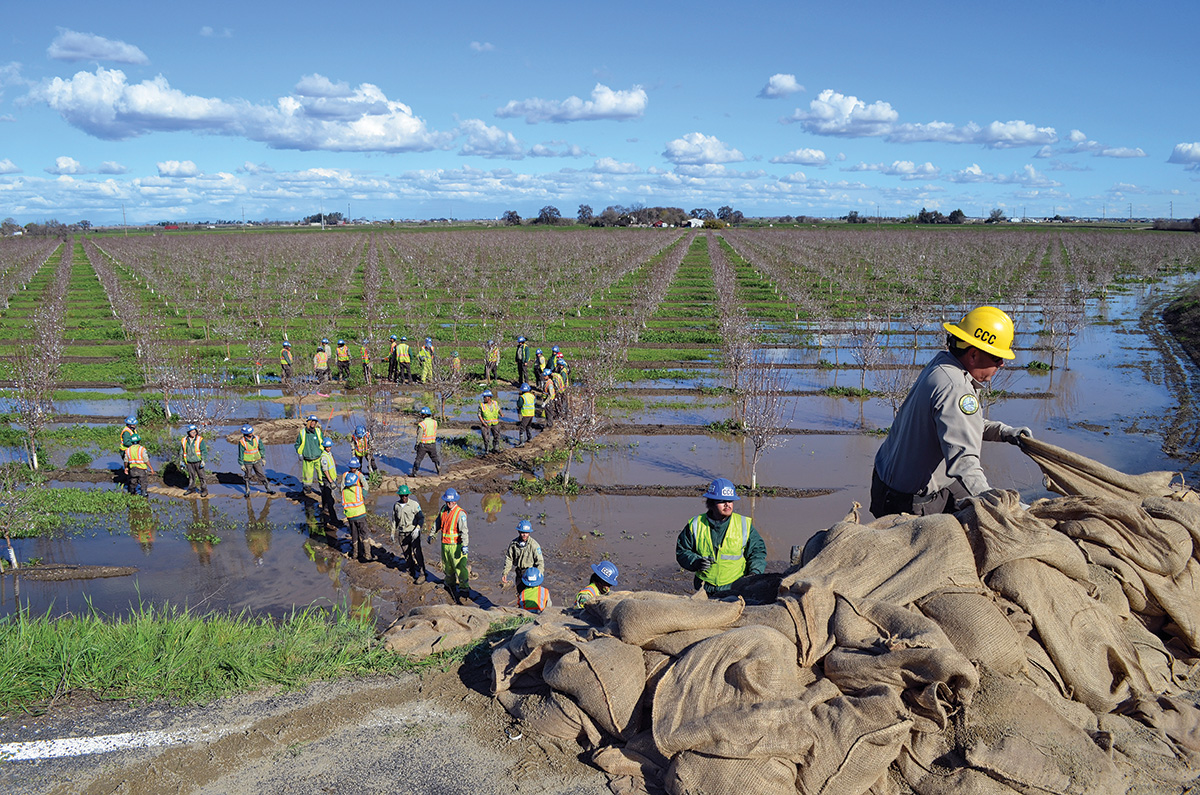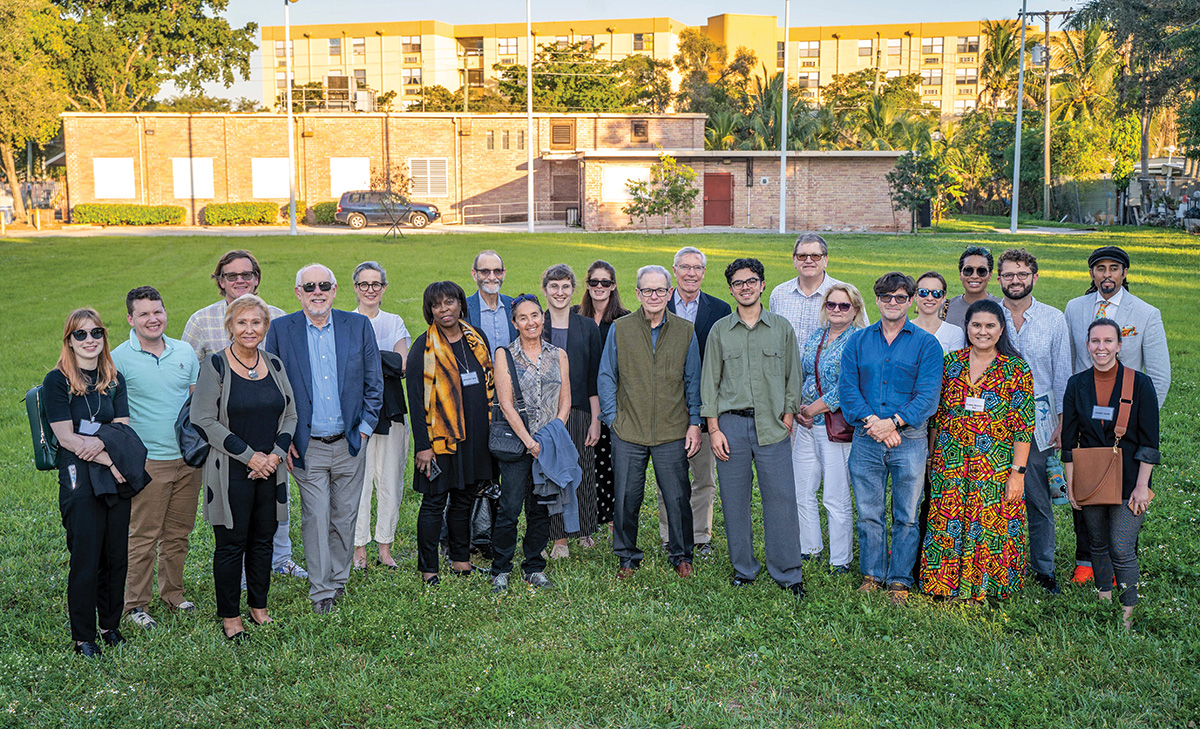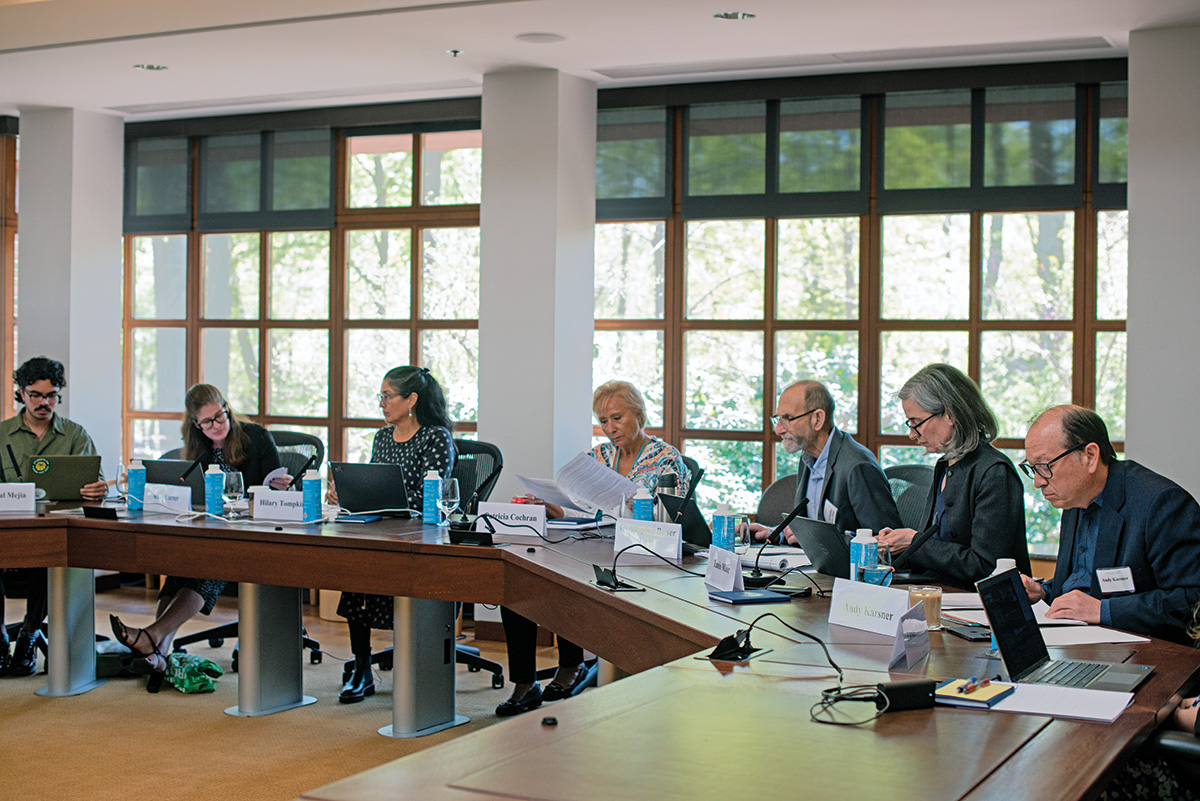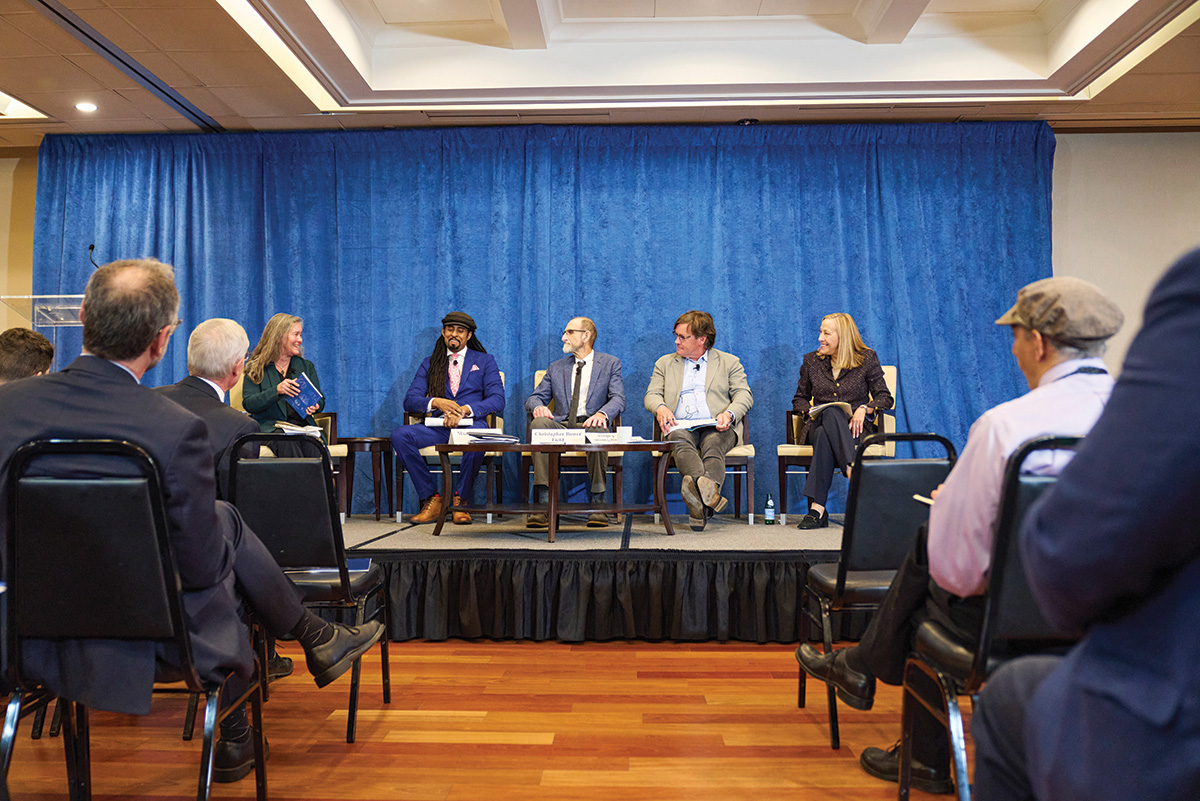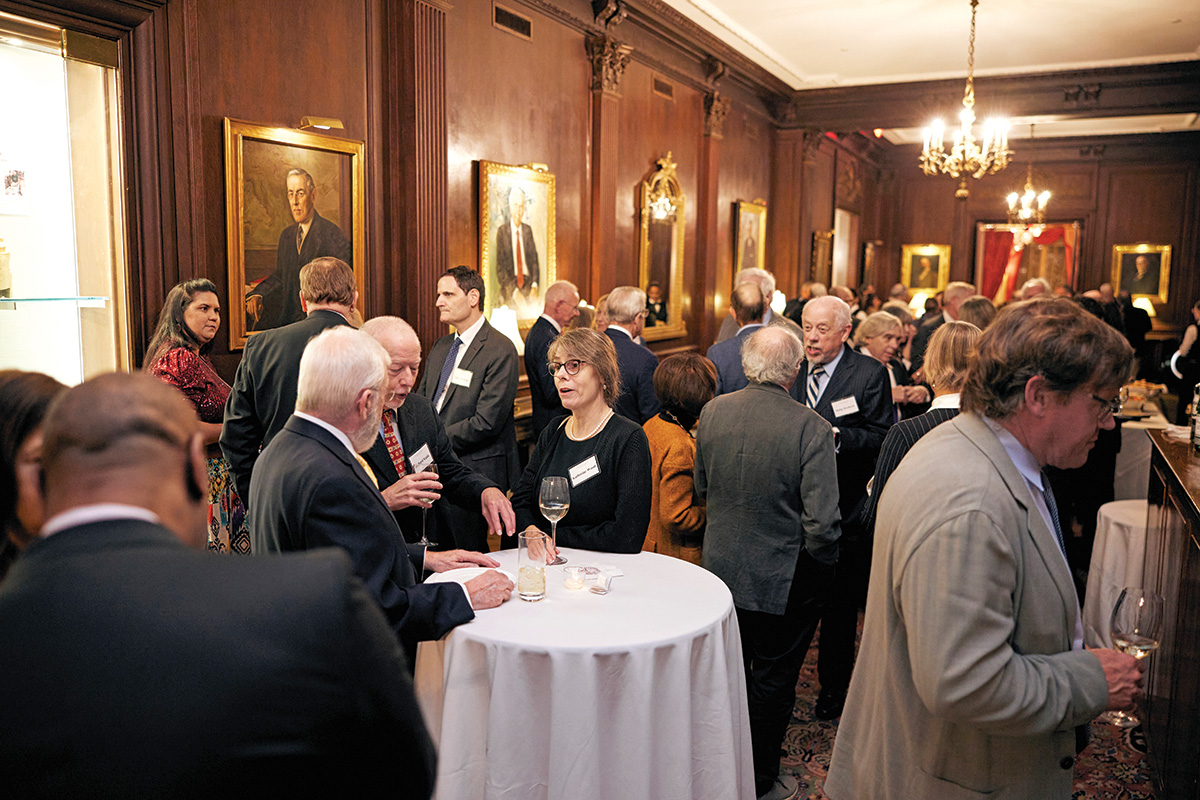The Academy’s record of distinction in Science, Engineering, and Technology dates to its founding mission “to cultivate every art and science which may tend to advance the interest, honor, dignity, and happiness of a free, independent, and virtuous people.” Rather than generate new scientific research, the role of the Academy has been uniquely interdisciplinary, bridging the social sciences and arts with the physical sciences to support a national understanding, belief, and trust in science and discovery. Perhaps no better example of this can be found than in the mid-1800s when the Academy hosted hotly contested debates about a new scientific theory–the theory of evolution.
Academy projects in Science, Engineering, and Technology seek to strengthen the capacity of science and engineering to improve the human condition. This goal has never been more important for the nation or for the world than it is today. Global challenges increasingly require collaboration across disciplinary, professional, and national boundaries. Likewise, rapid advances in information processing and transmission raise new issues for the management of scientific knowledge and for action on new discoveries.
Project
Commission on Accelerating Climate Action
The scientific consensus is clear: climate change is upon us, and its impacts will be devastating and increasingly difficult to prevent and address if we do not take action now. While most Americans express support for a broad array of climate policies and government action, polarization and a continued partisan divide have impeded the United States’ efforts to craft a long-term plan for climate action. Recent legislative successes have begun to create momentum for change, yet the country still lacks a broad and politically durable coalition to ensure that progress does not stall. To address this challenge facing our global society, the Academy formally launched a project on climate action in September 2021.
Unlike other climate change studies, the Commission on Accelerating Climate Action will not produce or analyze climate science data; it will not limit its recommendations to certain disciplines or economic sectors. Rather, the Commission will seek to leverage the full toolkit of its broad membership to reveal unique and creative interdisciplinary solutions: novel, specific, targeted actions that, if taken, would dramatically alter the trajectory of U.S. action on climate change.
In the past year, the Commission drafted recommendations based on comments of the seventy expert interviewees from its assessment of the national landscape on climate action. The findings from these interviews have been published in three workstreams: Communication, the Private Sector, and Human & Military Security. Throughout the year, the Commission met several times virtually and twice in person to hone the recommendations, which fall under five strategies: Prioritize Equity and Justice in Climate Action, Engage and Educate Across Diverse Communities, Mobilize Investment, Deploy Diverse Options for Controlling Emissions, and Ensure Adaptation at All Levels of Society.
The Commission has developed a theory of change that emphasizes the importance of simultaneously implementing short-term changes while experimenting with bold, transformative ones. Justice is a central component of the recommendations’ guiding philosophy. In fall 2023, the Commission published its recommendations in a consensus final report, Forging Climate Solutions: How to Accelerate Action Across America.
Commission Chairs
Mustafa Santiago Ali
National Wildlife Federation; Revitalization Strategies
Christopher Field
Stanford University
David G. Victor
University of California San Diego
Patricia Vincent-Collawn
PNM Resources
Commission Members
Benjamin Backer
American Conservation Coalition
Phyllis L. Bayer
Dumbarton Strategies, LLC
Mitchell Bernard
Natural Resources Defense Council, Inc.
Philip Bredesen
State of Tennessee; Silicon Ranch
Patricia Cochran
Alaska Native Science Commission
Ertharin Cousin
Food Systems for the Future
Mariano-Florentino Cuéllar
Carnegie Endowment for International Peace
L. Kealoha Fox
Institute for Climate & Peace
Tim Guinee
Climate Actors
Rebecca Henderson
Harvard University
Mitchell C. Hescox
Evangelical Environmental Network
Charles O. Holliday, Jr.
Mission Possible Partnership
Russel L. Honoré
Joint Task Force Katrina, Leadership, Safety & Global Preparedness Authority
Bob Inglis
republicEn.org
Kathleen Hall Jamieson
University of Pennsylvania
Alexander Karsner
X (Alphabet Inc.)
Elizabeth Kolbert
The New Yorker
John Paul Mejia
Sunrise Movement
Katherine Orff
SCAPE
David W. Oxtoby
American Academy of Arts and Sciences
Gary Roughead
Hoover Institution
Linda Rudolph
Public Health Institute; Medical Society Consortium on Climate and Health
Roger Sant
The Summit Foundation
J. Marshall Shepherd
University of Georgia
Doreen Stabinsky
College of the Atlantic
Hilary Tompkins
Hogan Lovells
Elke Weber
Princeton University
Project Staff
Carson Bullock
Program Associate for Science, Engineering, and Technology
Kate Carter
Program Officer for Science, Engineering, and Technology
Leo Curran
John E. Bryson Program Director for Science, Engineering, and Technology
Peter Robinson
Interim Chief Program Officer and Morton L. Mandel Director of Strategic Implementation
Kelsey Schuch
Hellman Fellow for Science and Technology Policy
Jennifer Smith
Program Coordinator for Science, Engineering, and Technology
Former Project Staff
Sophia Charan
Hellman Fellow for Science and Technology Policy
Islam Qasem
John E. Bryson Program Director for Science, Engineering, and Technology
Rebecca Tiernan
Program Associate for Science, Engineering, and Technology
Amanda Vernon
Program Officer for Science, Engineering, and Technology
Funders
John E. Bryson and Louise Henry Bryson
Hansjörg Wyss
Bob Higgins
The Alfred P. Sloan Foundation
The Grantham Foundation for the Protection of the Environment
The David and Ellen Lee Family Foundation
William and Helen Pounds
Roger Sant and Doris Matsui
Commission Publications
Forging Climate Solutions: How to Accelerate Action Across America (American Academy of Arts and Sciences, 2023)
Proven Principles of Effective Climate Change Communication (American Academy of Arts and Sciences, 2023)
Climate Change Security Risks and Opportunities (American Academy of Arts and Sciences, 2023)
Barriers to Private Sector Action (American Academy of Arts and Sciences, 2023)
Commission Meetings
Fourth Meeting of the Commission on Accelerating Climate Action
January 9–10, 2023
John S. and James L. Knight Foundation, Miami, FL
At this meeting, the Commission finalized the five overarching strategies around which its consensus report will be organized. The Commission also met with several local organizations, including Miami Waterkeeper, the CLEO Institute, and the Miami-Dade County Office of Resilience, to learn how issues of community empowerment and climate action have manifested at the local level.
Fifth Meeting of the Commission on Accelerating Climate Action
April 21, 2023
House of the Academy, Cambridge, MA
At this meeting, the Commission reached consensus on the list of recommendations for its forthcoming report, making sure that the recommendations are balanced to reflect both readily achievable goals and bold, transformative ones. The participants also discussed how to ensure each recommendation aligns with the Commission’s core principles of justice, pragmatism, and accountability.
Report Launch: Forging Climate Solutions: How to Accelerate Action Across America
Washington, D.C.
October 24, 2023
To celebrate the release of Forging Climate Solutions: How to Accelerate Action Across America, Laura Helmuth (Scientific American) moderated a panel discussion with the Commission’s cochairs. The event offered a unique opportunity for the cochairs to reflect on their time working with a diverse group of climate experts and discuss a whole-of-society plan to combat the climate crisis. The event also marked the beginning of the Commission’s outreach phase with government, industry, and nonprofit organizations.
Meeting with Environmental Organizations
Washington, D.C.
October 24, 2023
At this meeting, Commission members met with a foundational set of stakeholders in the climate movement: representatives from environmental nongovernmental organizations. The attendees discussed the Commission’s final report, Forging Climate Solutions.
Project
Challenges for International Scientific Partnerships
Challenges for International Scientific Partnerships (CISP) articulates the benefits of international collaboration and recommends solutions to the most pressing challenges associated with the design and operation of international partnerships. The initiative identifies policy recommendations and best practices to mitigate challenges for international science collaborations, including physical facilities, distributed networks, and peer-to-peer partnerships.
The project released its first report, America and the International Future of Science, in December 2020, its second report, Bold Ambition: International Large-Scale Science, in June 2021, and a third and final report, Global Connections: Emerging Science Partners, in January 2022.
The Large-Scale Science (LSS) working group approaches international collaborations through the lens of issues particular to large-scale science, not peer-to-peer or small-scale international work. This group has been tasked with exploring how the United States can enhance its role in these partnerships, both in physical facilities (such as CERN) and distributed networks (such as the Human Cell Atlas). This group is focusing on recommendations that will bolster the United States’ ability to partake in large-scale collaboration efforts as meaningful and engaged partners.
The Emerging Science Partners (ESP) working group explores issues particular to U.S. scientific collaborations at all scales with countries seeking to boost their scientific capacity, particularly those with limited resources to do so. This working group frames discussions around how the United States can be a better collaborator in its partnerships with emerging science partner countries and work to increase equity in these collaborations.
Project Chairs
Arthur Bienenstock
Stanford University
Peter Michelson
Stanford University
Steering Committee Members
Claude R. Canizares
Massachusetts Institute of Technology
Matthias W. Hentze
European Molecular Biology Laboratory
John G. Hildebrand
University of Arizona
Kerri-Ann Jones
Pew Charitable Trusts
William F. Lee
Wilmer Cutler Pickering Hale and Dorr, LLP
Shirley Malcom
American Association for the Advancement of Science
Cherry A. Murray
University of Arizona
Venkatesh Narayanamurti
Harvard University
Olufunmilayo I. Olopade
University of Chicago
Geraldine L. Richmond
U.S. Department of Energy
Vaughan C. Turekian
National Academies of Sciences, Engineering, and Medicine
Caroline S. Wagner
The Ohio State University
Large-Scale Science Working Group
Arthur Bienenstock, Cochair
Stanford University
Peter Michelson, Cochair
Stanford University
Claude R. Canizares
Massachusetts Institute of Technology
E. William Colglazier
American Association for Advancement of Science
Inez Fung
University of California, Berkeley
Michael Holland
University of Pittsburgh
Kaye Husbands Fealing
Georgia Institute of Technology
Cherry A. Murray
University of Arizona
Philip Rubin
Yale University
Gary Sanders
California Institute of Technology
Diane Souvaine
Tufts University
Emerging Science Partners Working Group
Shirley Malcom, Cochair
American Association for the Advancement of Science
Olufunmilayo I. Olopade, Cochair
University of Chicago
Alice Abreu
Federal University of Rio de Janeiro
Bruce Alberts
University of California, San Francisco
Bernard Amadei
University of Colorado at Boulder
Arthur Bienenstock, ex officio
Stanford University
Jared Cohon
Carnegie Mellon University
Rita Colwell
University of Maryland
James W. Curran
Emory University
Ali Douraghy
Lawrence Berkeley National Laboratory
(concluded participation in the working group on January 19, 2021)
Nina Dudnik
Seeding Labs
Mohamed Hassan
The Sudanese National Academy of Sciences
John G. Hildebrand
University of Arizona
Nkem Khumbah
University of Michigan
Peter Michelson, ex officio
Stanford University
Peggy Oti-Boateng
United Nations Educational, Scientific, and Cultural Organization
Jamil Salmi
Diego Portales University
Flavia Schlegel
United Nations Educational, Scientific, and Cultural Organization
Vaughan C. Turekian
National Academies of Sciences, Engineering, and Medicine
Caroline S. Wagner
The Ohio State University
Project Staff
Carson Bullock
Program Associate for Science, Engineering, and Technology
Kate Carter
Program Officer for Science, Engineering, and Technology
Leo Curran
John E. Bryson Program Director for Science, Engineering, and Technology
Peter Robinson
Interim Chief Program Officer and Morton L. Mandel Director of Strategic Implementation
Kelsey Schuch
Hellman Fellow for Science and Technology Policy
Jennifer Smith
Program Coordinator for Science, Engineering, and Technology
Former Project Staff
Sophia Charan
Hellman Fellow for Science and Technology Policy
Islam Qasem
John E. Bryson Program Director for Science, Engineering, and Technology
John Randell
John E. Bryson Program Director for Science, Engineering, and Technology
Gregory Savageau
Program Associate for Science, Engineering, and Technology
Rebecca Tiernan
Program Associate for Science, Engineering, and Technology
Amanda Vernon
Program Officer for Science, Engineering, and Technology
Funders
The Alfred P. Sloan Foundation
William and Flora Hewlett Foundation
Gordon and Betty Moore Foundation
Project Publications
Global Connections: Emerging Science Partners (American Academy of Arts and Sciences, 2022)
Bold Ambition: International Large-Scale Science (American Academy of Arts and Sciences, 2021)
America and the International Future of Science (American Academy of Arts and Sciences, 2020)
Project Meeting
Virtual Roundtable on Funding Discovery Science in Africa
cohosted with the Science Philanthropy Alliance
September 19, 2022
At this event, which included opening remarks from the CISP project cochairs, France Córdova (Science Philanthropy Alliance) moderated a panel conversation with Amina Abubakar (Kenya Medical Research Institute), Yaw Agyeman (Gordon and Betty Moore Foundation), Karen Makar (Bill and Melinda Gates Foundation), and Anne Petersen (Global Philanthropy Alliance). The discussion centered on co-creation of capacity-building programs and long-term partnerships between the United States and the Global South.
